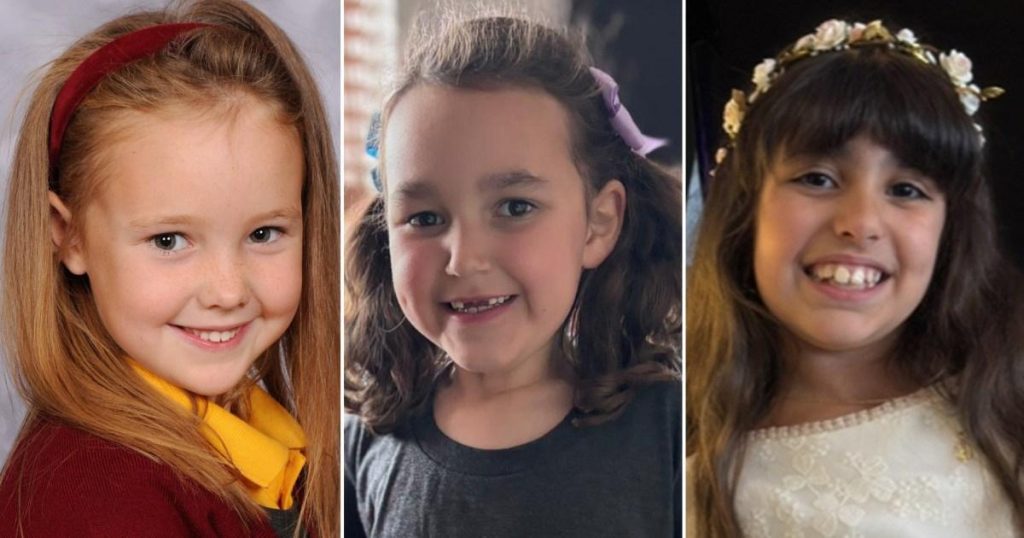The quiet coastal town of Southport, Merseyside, was shattered on July 29th when 18-year-old Axel Rudakubana launched a horrific knife attack at The Hart Space, a dance studio hosting a Taylor Swift-themed class. The attack claimed the lives of three young girls: nine-year-old Alice da Silva Aguiar, six-year-old Bebe King, and seven-year-old Elsie Dot Stancombe. Rudakubana also injured eight other children and two adults, Leanne Lucas and Jonathan Hayes, before being apprehended. The seemingly senseless act of violence shocked the nation and left the community grappling with unimaginable grief.
On the first day of his trial, Rudakubana, who had previously refused to enter a plea or even speak in court, pleaded guilty to three counts of murder and the attempted murder of the ten other victims. This admission spared the families the further trauma of a protracted trial, but also raised serious questions about the circumstances that led to this tragedy. The Prime Minister, Keir Starmer, acknowledging the national outpouring of grief, expressed the need for answers as to how the state failed to protect these children, despite prior warnings about Rudakubana’s violent tendencies.
Rudakubana’s disturbing history of violent behavior and interest in extremist ideologies came to light following the attack. He had been referred to the government’s counter-terrorism program, Prevent, on three separate occasions, beginning at the age of 13. One referral specifically mentioned his interest in perpetrating a school massacre. However, despite these warning signs, Prevent officials concluded that he did not pose a terrorist threat and deemed him unsuitable for the program’s intervention. This decision has come under intense scrutiny, with many questioning whether opportunities to intervene and potentially prevent this tragedy were missed.
The attack sparked immediate public outrage and grief, and a vigil was held in Southport the following day, drawing thousands of mourners. Tragically, misinformation surrounding the attacker’s identity, falsely labelling him as a Muslim asylum seeker, fueled separate protests that devolved into violence and unrest. This misinformation, spread rapidly online, highlighted the dangerous consequences of unchecked rumors and hate speech in the wake of a tragedy. A group of victim and survivor organizations, including prominent figures like the wife of Fusilier Lee Rigby and the mother of Jimmy Mizen, issued a plea for unity and urged the public to focus on supporting the victims and their families rather than allowing the tragedy to be exploited for political gain. They emphasized the importance of remembering the victims and working towards a society where such violence is prevented.
The investigation into Rudakubana’s background revealed further disturbing details. Born in Cardiff to Rwandan parents, he moved to Banks, Lancashire, around 2013. While neighbors described his family as unremarkable, school officials documented concerns about his violent behavior. He was excluded from Range High School following an incident involving a hockey stick and was subsequently transferred to a special school, where concerns about his violence persisted. A search of his home after the attack uncovered the highly toxic poison ricin and a PDF file titled “Military Studies in the Jihad against Tyrants: The Al-Qaeda Training Manual,” which he reportedly possessed since August 2021. He pleaded guilty to possessing the ricin and the document, as well as possessing a kitchen knife in public.
The discovery of these materials contributed to charges of producing a biological toxin and possessing a document likely to be useful to a person committing or preparing an act of terrorism, further complicating the narrative surrounding the attack. While authorities initially stated there was no evidence of terrorist motivation, the presence of the Al-Qaeda manual raised questions. Merseyside Police Chief Constable Serena Kennedy clarified that the charge under the Terrorism Act did not require establishing a motive, leaving the question of Rudakubana’s ultimate motivations unclear. The prosecution emphasized Rudakubana’s “sickening and sustained interest in death and violence” and his lack of remorse. He is scheduled to be sentenced, with the families and the community awaiting justice for the senseless loss of life and the deep scars left on their town.











